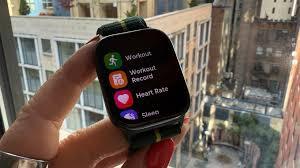Cold Showers & Stress: What Science Says (And Why It’s Not Just Internet Hype)
There’s a certain kind of pain that comes with a cold shower. That shock against the skin, the instinct to jump back, to curse whoever suggested it. But behind that discomfort, there’s a wave of research hinting that maybe — just maybe — the benefits go deeper than the chill. Especially when it comes to stress.

So, what’s really happening when we willingly step under cold water? And can it actually help us handle stress better?
1. The Shock That Starts It All
Cold water hits your body like a jolt. The skin senses the drop in temperature immediately, and this sets off the “cold shock response.” That’s your body’s way of saying, “This isn’t normal.” Your breathing speeds up, your heart races, and blood moves away from your skin and into your core.
That might sound like a stress response — and it is. But oddly, that’s part of the reason it helps.
When you expose yourself to short bursts of controlled stress (like a cold shower), your body gets a kind of training. Over time, this builds what scientists call stress tolerance. You’re better able to respond to pressure without tipping into panic.
2. The Hormonal Rollercoaster
A cold shower doesn’t just mess with your skin — it taps into your nervous system too. Your body releases norepinephrine, a hormone tied to alertness and focus. This happens fast, sometimes within minutes.
This hormone helps you feel sharper, more awake. It’s one reason people who take cold showers in the morning say they feel mentally clearer — not just cold and angry.
But there’s more. Cold exposure also reduces cortisol, the hormone tied to long-term stress. Now, cortisol isn’t all bad. It keeps you going when things get hard. But too much of it, over time, chips away at your well-being — sleep gets worse, you feel edgy or drained. Cold showers help recalibrate that balance.
3. Breathing Through It
That first gasp when cold water hits? It’s not just drama — it’s biology. Your breathing speeds up, which lowers carbon dioxide in your body. But here’s the trick: if you stay calm, you retrain your nervous system.
A lot of people use cold showers like breath training. You learn to slow your inhale and exhale, even when everything in your body wants to freak out. That skill translates to real-life stress. Next time your boss drops something last-minute, or life goes sideways, your body remembers how to breathe through it instead of spinning out.
4. Adaptation: Why It Gets Easier (Sort of)
Take cold showers regularly and your body gets better at dealing with them. Your blood vessels become more responsive. Your brain doesn’t panic as much. That’s called “habituation.” It’s your body learning this kind of stress isn’t deadly — and maybe isn’t even bad.
In the bigger picture, this kind of adaptation helps with emotional and psychological stress too. You become less reactive. More stable. Like someone who’s stood under freezing water and lived to tell the tale.
5. Cold Water and Mental Health
Here’s where it gets interesting. A handful of studies have looked at cold exposure and mood. Early results suggest it can help with symptoms of depression and anxiety. One theory is that the cold stimulates the vagus nerve — a major part of the system that calms you down.
Some people report feeling more positive after a cold shower. Not ecstatic. Just — lighter. Less bogged down. There’s still a lot to learn here, but it’s a promising area.
Also, there’s the discipline part. Doing something hard, every day, builds confidence. Cold showers become a kind of ritual. A way of saying: “I did something difficult. I can handle this day.”
6. How Cold Is Cold Enough?
You don’t need to turn the water to arctic. Most of the benefits show up in water that’s just below body temperature — usually between 50 and 60 degrees Fahrenheit. Even 30 seconds can help, though many people aim for 2 to 3 minutes.
Some folks do contrast showers — switching between hot and cold. Others finish their regular shower with 30 seconds of cold. The key is consistency, not extremism.
7. Not for Everyone
Important note: cold showers aren’t a cure-all. They’re also not safe for everyone. People with heart conditions or certain medical issues should be careful. That shock to the system can be too much.
It’s also not a stand-in for therapy, rest, or a healthy lifestyle. Think of it more like a small, tough habit that nudges your stress tolerance up a notch. Useful — but not magic.
8. Final Thoughts: Discomfort as a Tool
We’re wired to avoid discomfort. And cold showers are the definition of it. But learning to face discomfort in small, safe doses — especially first thing in the morning — builds something valuable. Grit. Calm under pressure. A kind of resilience that sneaks into the rest of your life.
It’s not about becoming superhuman. Just a little more grounded. A little more ready.
And sometimes, that’s enough.




